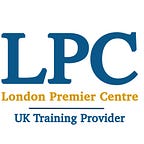What You Need to Know About Invest in Bonds
Invest in bonds process, is something you must have heard about from friends, colleagues, and neighbours when you are interested in new investments to increase your fixed income.
All and any investment portfolio aim to empower and increase investors’ money assets in a risk-free way to achieve its ultimate investing goal.
In this guidepost, we are going to speak about investing in bonds process meaning, investment terms, how bonds tend to increase your income, types of bonds, and the important pros and cons of investing in bonds.
The Meaning of Invest in Bonds:
Individuals in bonds are typically a safe financial investment in a loan type where the lenders choose to loan money to the borrower (issuer) treasury to earn steady cash, whether, this investor is a corporate, organisation, or even the country’s government.
When you invest in bonds then you are investing a certain amount of money to buy bonds and gain profits with a fixed interest rate (coupon) to gain at the end of maturity dates.
Terms You Should Know Before Investing in Bonds:
If you are looking into the asset management process to improve your business, you need to learn how to invest in bonds, which may be considered a safer investment way for your fund, even if you are an individual with no good previous investment experience:
- Face Value:
This term is the fixed funds’ income that usually investors will receive at the end of maturity.
- Coupon Rate:
Is the specific rate of interest the issuer promises to add to raise the brokers’ bond value or to pay directly to the investing people?
- Coupon Dates:
The interest payment date, whether semi-annual or annual, depends on the companies’ building strategies.
- Maturity Dates:
Essentially, when the issuers repay the sold bond’s face value to the investors and holders.
- Issue Price:
The issuer identifies the bond’s original price and is most likely issued at the same face value (at. par).
How to Invest in Bonds:
Generally, a corporation or a government (the issuer) issues bonds selling to collect funds for a new project, products exchange, potential traded plan, instruments set, or ongoing account from individual investors, so a bond is debt lending from investors to the issuer.
The issuers provide all the details on the bond market and online, including prices and financial factors; moreover, some corporations provide brokerage advisors and planners as ways to convince the buyers to invest in their investment bonds, then at the maturity and coupon dates, the issuer pays the bonds’ investment value to the buyers.
Invest in Bonds Pros:
As bonds are relatively safe investments, then a variety of benefits are available for your investment portfolio:
- Your overall money assets are protected as bond investments offer a total return of principal with low-risk rates for stocks.
- Accurate and safe investments from all aspects are particularly recommended for new investors.
- Fixed interest payment due to the invested coupon rate.
- Predictable payment schedule and fixed investment return due to maturity and coupon rates.
- Great profit if the bond values increased.
Invest in Bonds Cons:
As with anything in the investment world, you must understand that also invest in bonds has some issues to talk about:
- Bond value is affected by the interest rate, which is the most challenging subject when considering investing in bonds.
- Low ROI rate, although bonds are typically safe investments to increase your income compared to other investments, your portfolio will not get that more extensive with bonds only.
- Credit risk is because an issuer has the authority to default on its bond debt for no apparent reason.
- Money flow risks, as you could want liquid funds but could not sell your bonds at a reasonable price.
4 Types of Bonds:
Many specifications are related to bond investing, leading to various types existing:
- Zero-Coupon Bond:
Also known as Z-bonds, which are issued with a discount to their face value, at the maturity date, the bondholder will pay the entire face value to the investors.
- Convertible Bond:
When you invest in bonds, you can be interested in this bond-type purchase, as the issuers issue coupons with a lower interest rate with the bondholders’ advantage of turning these bonds into stocks when the stock price reaches a specific value.
- Callable Bond:
This is also a changeable investment in bonds type, where the company could call back the bonds before the maturity date, and the issuer would pay the bond face value.
However, callable bonds are riskier and have less rating value than other different bond types.
- Putable bond:
In contrast to callable bonds, we have puttable bonds where bondholders could sell the bonds to the corporate itself before the maturity date; this investment in bonds type has high market value just because it is a safety form against the market volatility among all used bond investing types.
All in all,
Investing in bonds is something great to consider to make a fixed income and increase your funds. However, this must be done with suitable investment and market knowledge, so join our investment management training course in London to gain better profits.
